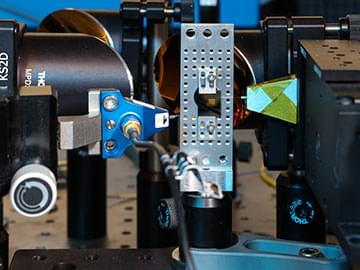Just as overlapping ripples on a pond can amplify or cancel each other out, waves of many kinds — including light, sound and atomic vibrations — can interfere with one another. At the quantum level, this kind of interference powers high-precision sensors and could be harnessed for quantum computing.
In a new study published in Science Advances, researchers at Rice University and collaborators have demonstrated a strong form of interference between phonons — the vibrations in a material’s structure that constitute the tiniest units, or quanta, of heat or sound in that system. The phenomenon where two phonons with different frequency distributions interfere with each other, known as Fano resonance, was two orders of magnitude greater than any previously reported.
“While this phenomenon is well-studied for particles like electrons and photons, interference between phonons has been much less explored,” said Kunyan Zhang, a former postdoctoral researcher at Rice and first author on the study. “That is a missed opportunity, since phonons can maintain their wave behavior for a long time, making them promising for stable, high-performance devices.”
Rice researchers have demonstrated a form of quantum interference two orders of magnitude greater than any previously reported.







